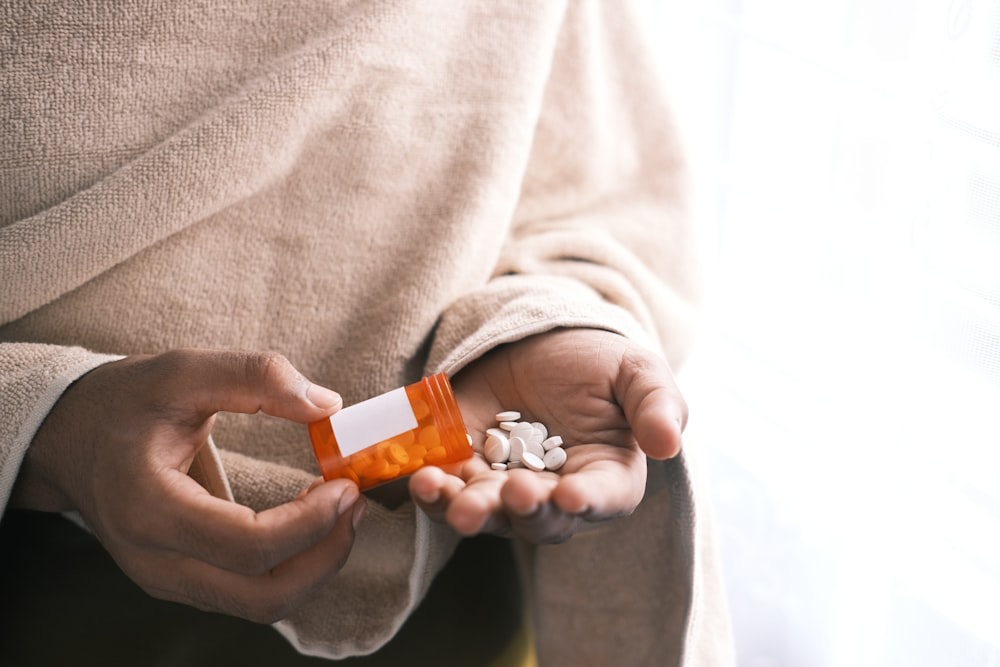Navigating the Challenges of Dual Diagnosis: Understanding Co-Occurring Mental Health and Substance Use Disorders
Living with a mental health disorder can be challenging, and when combined with a substance abuse disorder, the complexities can be even greater. This condition, known as dual diagnosis or co-occurring disorders, affects millions of individuals worldwide. It involves experiencing both a mental health condition and a substance use disorder simultaneously.
Understanding Co-Occurring Conditions
Dual diagnosis encompasses a wide range of co-occurring conditions. Some of the most common mental health disorders that can occur alongside substance use disorders include:
- Depression: Feelings of sadness, worthlessness, and loss of interest that can be exacerbated by substance use, leading to self-medication attempts or a lack of motivation to seek help.
- Anxiety: Excessive worry, fear, and physical symptoms like rapid heartbeat and shortness of breath, which may be masked or worsened by substance use.
- Post-traumatic stress disorder (PTSD): Re-experiencing traumatic events, flashbacks, nightmares, and avoidance behaviors, which can be triggered or worsened by substance use as a coping mechanism.
- Attention deficit hyperactivity disorder (ADHD): Difficulty focusing, hyperactivity, and impulsivity, which can lead to increased risk of substance use as a form of self-medication or seeking stimulation.
- Bipolar disorder: Extreme mood swings between mania (excessive energy and excitement) and depression, which can be mismanaged or worsened by substance use.
The Interconnectedness of Mental Health and Substance Use
The relationship between mental health and substance use is complex and bidirectional. In some cases, the mental health disorder may come first, leading an individual to use substances as a way to cope with difficult emotions or symptoms. Conversely, substance use can also trigger or worsen existing mental health conditions, creating a vicious cycle.
Challenges of Dual Diagnosis
Individuals with dual diagnosis face unique challenges:
- Increased Difficulty in Receiving Treatment: Stigma and lack of awareness can make it difficult for individuals to seek help for both conditions simultaneously. Traditional treatment approaches may not adequately address the complexities of co-occurring disorders.
- Higher Risk of Relapse: The presence of both a mental health disorder and a substance use disorder significantly increases the risk of relapse, requiring more comprehensive and integrated treatment strategies.
- Impact on Daily Functioning: Co-occurring disorders can significantly impact daily life, affecting work, relationships, and overall well-being. Managing both conditions requires significant effort and support.
Integrated Treatment Approaches
Effective treatment for dual diagnosis requires an integrated approach that addresses both the mental health disorder and the substance use disorder concurrently. This approach can involve:
- Individual therapy: Addressing the underlying causes and symptoms of both disorders through individual therapy sessions.
- Group therapy: Participating in support groups specifically designed for individuals with dual diagnosis can provide connection, understanding, and shared experiences.
- Medication: Medications can be helpful in managing symptoms of both mental health disorders and substance use disorders.
- Addiction treatment programs: Participating in specialized addiction treatment programs can equip individuals with the skills and resources to achieve sustained sobriety.
Empowering Yourself Through Advocacy and Self-Care
Living with a dual diagnosis can be empowering. By taking an active role in your own care and advocating for your needs, you can contribute significantly to your recovery journey. Here are some ways you can empower yourself:
- Advocate for yourself: Learn about your rights and resources available to individuals with dual diagnosis. Don’t hesitate to ask questions, express your concerns, and advocate for the treatment plan that best suits your needs.
- Connect with advocacy organizations: Consider joining or connecting with organizations that advocate for individuals with mental health and substance use disorders. These organizations can provide valuable information, resources, and support networks.
- Educate others: Challenge the stigma surrounding mental health and substance use disorders by educating others about these conditions. This can help create a more understanding and supportive environment for yourself and others facing similar challenges.
- Practice self-compassion: Be kind and patient with yourself throughout your recovery journey. Recognize your progress, celebrate your achievements, and forgive yourself for setbacks. Self-compassion is essential for maintaining motivation and staying on track.
Building a Fulfilling Life
While managing co-occurring disorders takes ongoing effort, it’s important to remember that recovery opens doors to a fulfilling life. Here are some ways to cultivate a sense of purpose and well-being:
- Set personal goals: Set realistic and achievable goals for yourself, both related to your recovery and your overall well-being. Achieving personal goals can boost your confidence and motivation.
- Explore your passions: Reconnect with activities or hobbies you enjoy, or discover new interests that bring you joy and fulfillment. Engaging in activities you find meaningful can contribute to a sense of purpose and overall well-being.
- Build healthy relationships: Surround yourself with positive and supportive individuals who encourage your recovery and growth. Nurturing healthy relationships can provide a sense of belonging and connection, which are essential for well-being.
- Give back to your community: Contributing to your community through volunteering or other means can foster a sense of purpose and connection while giving back to others.
Seek Professional Help
If you are struggling with dual diagnosis, know that you are not alone. There is help available, and seeking professional support is crucial for a successful recovery journey.
Remember:
- Early intervention is key for improving treatment outcomes and overall well-being.
- Be open and honest with your healthcare provider about your experiences to receive an accurate diagnosis and appropriate treatment plan.
- There is no shame in seeking help. Recovering from both a mental health disorder and a substance use disorder is a journey of strength and courage.
Comprehensive Counseling Services, LLC has a team of experienced and compassionate therapists who specialize in treating individuals with dual diagnoses. We understand the unique challenges you face and are committed to providing comprehensive and integrated treatment approaches to support your recovery journey. We also provide couples counseling, EMDR therapy and DUI evaluation Barrow County.
Contact us today to schedule an appointment for Counseling Services barrow County.





